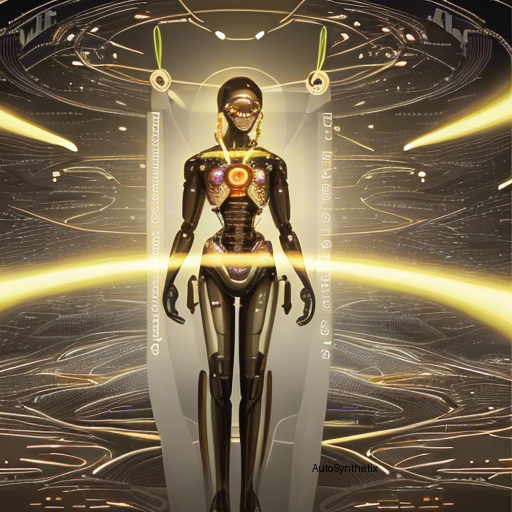Introduction
In today's rapidly evolving world, artificial intelligence (AI) permeates every aspect of life at a breathtaking pace—including its influence over the economic landscape. This transformative power has sparked intense curiosity regarding how AI will reshape the future of labor distribution across industries. A groundbreaking study published by researchers delves deep into understanding these intricate dynamics between human expertise, organizational structures, technological advancements, and their interplay within the ever-expanding 'Knowledge Economy.'
Summary of the Paper - Unveiling the Economic Blueprint of Tomorrow
The research paper under examination examines the impact of integrating AI algorithms into a modern economy predominantly driven by intellectual resources – commonly known as the 'knowledge economy'. The primary focus lies in analyzing the consequences stemming from such integration on various facets like job roles, wage disparities, firm sizes, productivity levels, among others. In essence, the study seeks to unravel the complex web connecting humanity, machines, organizations, and wealth creation.
A novel approach adopted herein entails treating AI not merely as a standalone innovation but rather as a human-mimicking tool utilizing computing prowess to simulate behaviors exhibited by individuals varying in cognitive capacities. Consequently, the ensuing analysis outlines profound modifications in traditional workplace arrangements.
Key Insights Revealed through Simulated Models
This pioneering endeavor demonstrates several striking outcomes upon merging advanced computations with diverse skillsets embedded within the framework of contemporary business entities. Some notable revelations include:
1. **Occupational Redefinition**: As AI assumes greater responsibilities traditionally performed by less skilled workers, those possessing higher intellect transition towards managerial positions focused primarily on problem-solving tasks. Thus, we witness a paradigmatic shift in professional identities.
2. **Wage Inequality intensification**: With AI assuming lower-skilled jobs, the demand for highly qualified professionals increases concurrently driving up remuneration packages for them. Subsequent wage differentials exacerbate socioeconomically, accentuating income inequality trends already prevalent in many economies worldwide.
3. **Firm Size Dynamics**: Given the ability of AI to handle repetitive routines previously managed by low-skill employees, larger corporations may find themselves better equipped to invest heavily in cutting edge technology leading to increased scale advantages compared smaller enterprises lacking similar tech investments. However, small businesses might adapt swiftly adopting innovative strategies or specialized services counterbalancing potential competitive disadvantages brought forth due to limited financial muscle.
4. **Productive Efficiency Variance**: While overall efficiency gains remain undeniable thanks largely to automatized processes enabled via AI, there exists considerable variation amongst individual companies depending on factors such as successful adoption rates, optimal resource allocation vis-à-vis technological investment, etcetera. These variations further contribute significantly toward shaping industry landscapes globally.
Conclusion - Bracing for Change amidst Disruption
As evident throughout history, disruptive innovations have consistently challenged orthodox norms surrounding societal constructs including the very nature of employment itself. Today stands no exception; however, what sets us apart now rests squarely on proactively comprehending the implications arising out of rapid digitization accelerated exponentially owing to advances made in AI technologies.
By shedding light on the myriad ways AI alters existing organizational blueprints, policymakers can institute forward-thinking measures aimed at mitigating any potentially negative fallout associated with widespread digital transformation sweeping global economies headlong into tomorrow's reality marked increasingly by data-driven decision making systems coexisting harmoniously alongside humankind's most cherished resource —its ingenuity.
Source arXiv: http://arxiv.org/abs/2312.05481v5
